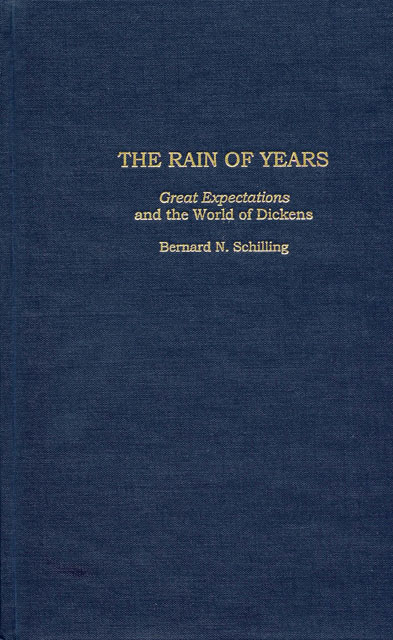3 - Great Expectations
Published online by Cambridge University Press: 17 March 2023
Summary
THE DOMINANCE OF MONEY AS ATHEME continues in Great Expectations. Throughout Dickens's creations the language and metaphor of money, the terms of indebtedness, lending, borrowing, rates of payment and return tell us what money can do, how it can change distinctions of class, how it can completely alter the conditions of life.
While money is not in itself evil, we see that the drive to get money accounts for large areas of human wickednesss—depending on what is done to obtain it and how it is finally spent. Money affects such a vast area of human nature and human activity that it stands for things and men as they are. In the nineteenth century money came to represent and make accessible to human ambition the means to satisfy vanity and selfish materialism, to gain advantage, power, and luxury. Dickens attacks money, then, because it corrupts morality and all decent values.Throughout his work, those without money tend to be better people than those who have it or those who are bent on attaining it. Getting money raises the question of the means used to obtain it and the source from which money comes.
The pursuit of money clashes with one of Dickens's declared moral absolutes: work. Nothing of value can be had without work. The moral problems raised by money are numerous and contradictory. Money tends to corrupt when it is divorced from work, when it is obtained solely by chance, by merely shrewd business operations, by inheritance, or undeserved acquisition. Ruin lies ahead, he warns, for young men who depend not on their own efforts but on their “expectations.”
The case against money is not complete until its role in fostering illusion is exposed, as in the moral realism of the title, Great Expectations.That title suggests the disillusion of the author and raises great human questions, symbolic either of defeat or acceptance of things as they are. Here Dickens's attack on nineteenth century opti- mism reaches its fulfillment. He questions the very nature of the age that gave hope to the young, that roused Hazlitt's feeling of youth's immortality, when it was glorious to be alive, when an obscure Corsican might become emperor of France, and when an impoverished English artisan might attain to unimagined riches and a seat in the House of Lords.
Thus, the nineteenth century created illusions destined to be lost and inspired “great” expectations.
- Type
- Chapter
- Information
- Rain of YearsGreat Expectations and the World of Dickens, pp. 63 - 107Publisher: Boydell & BrewerPrint publication year: 2001

